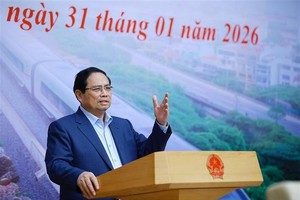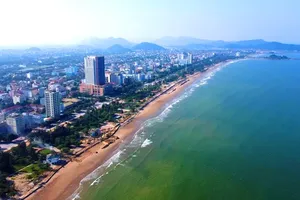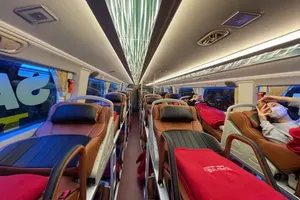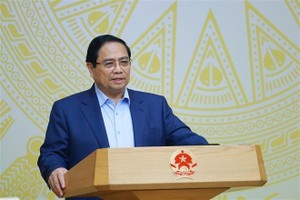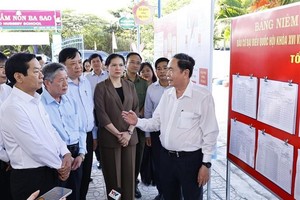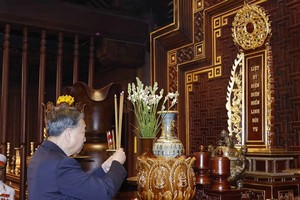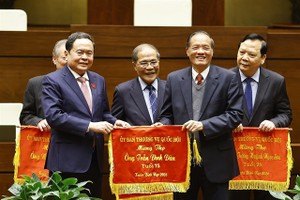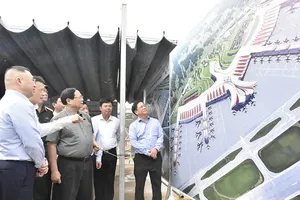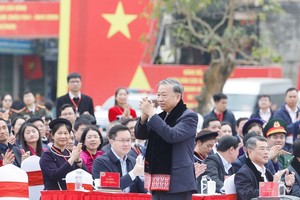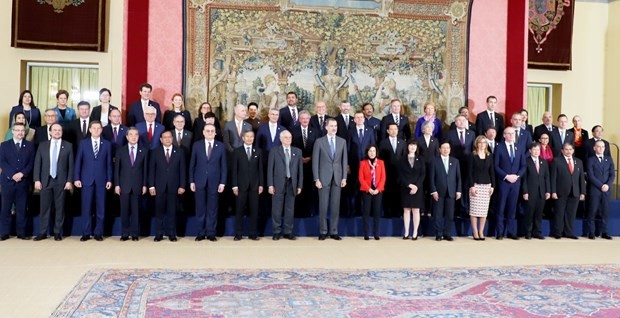
The meeting gathered foreign ministers and officials of the 53 ASEM members, consisting of 21 Asian and 30 European countries, the European Union (EU) and the ASEAN Secretariat.
Opening the event, High Representative of the EU for Foreign Affairs and Security Policy Josep Borrell highlighted ASEM’s role as a cooperation mechanism of leading importance between the two continents that has taken the lead in promoting multilateralism and rules-based international order and contributed to peace, cooperation and development.
Themed “Asia and Europe: Together for Effective Multilateralism”, the event will work out concrete measures to continue intensifying the Asia-Europe partnership in the three pillars of political dialogue, economic cooperation and cooperation in other fields, according to him.
King of Spain Felipe VI said the ASEM needs to reform, improve its responsiveness and cooperation effectiveness, and maintain its core values and basic principles, thereby affirming its indispensable role in the swiftly changing context.
At the plenary session following the opening ceremony, the participating ministers shared the view that the ASEM should bring into play its role in promoting multilateralism, consolidating the multilateral trading system, and reforming the World Trade Organisation (WTO).
The meeting also agreed on many measures to enhance ASEM cooperation in responding to growing global challenges, especially climate change, natural disasters, sustainable management of natural resources, food security, energy, water resources, and marine plastic waste.
In his speech, Deputy PM and Foreign Minister Minh emphasised that multilateral cooperation mechanisms, with the United Nations at the centre, have established their indispensable role over the last 75 years.
However, he also pointed out that multilateralism is facing unprecedented challenges, particularly fierce competition among countries, increasing trade disputes, anti-globalisation, extensive impact of digital technology risks, climate change, growing inequality, economic and trade growth stagnation, and unsustainable habits on the environment.
For the ASEM to keep its leading role in fostering multilateral cooperation, rules-based international order, as well as its strategic role in decades to come, Minh proposed its members affirm the fundamental role of international law and the UN Charter in international relations and multilateral cooperation.
He also called on them to design a new agenda matching the current context, along with an overall approach to multilateral cooperation at all levels, from regional, inter-regional to global levels, which must centre on the people and pay attention to peace, traditional and non-traditional issues.
Additionally, it is also necessary to step up the reform of multilateral institutions, especially the UN and the WTO, so as to adapt to the changes of the era and effectively deal with urgent issues for the people, the official added.
The Deputy PM also stressed the special position of multilateral cooperation in Vietnam’s foreign policy, highlighting the country’s strong commitment to realising the Sustainable Development Goals and the Paris Agreement on climate change.
He proposed a high-level ASEM dialogue on economic empowerment to women in the digital era be held in Vietnam in 2020. Many ASEM members, including Australia, China, Demark, Finland, Indonesia, Italy, Japan and Norway, supported this initiative.
In his speech, Minh also noted as a non-permanent member of the UN Security Council for 2020-2021 and ASEAN Chair in 2020, Vietnam will continue joining hands with other ASEM members to strengthen the vitality of the multilateral system and bolster the ASEM partnership in global issues for the sake of peace and sustainable development in the two regions and the world.


